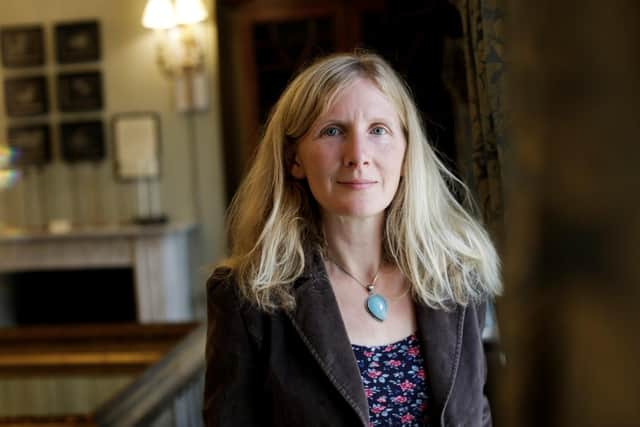Book review: Orbital, by Samantha Harvey
“Write what you know” is perhaps the most fatuous piece of Creative Writing advice in the canon. It is attributed to Mark Twain with no provenance that I can trace. (Likewise, by the way, “Kill your darlings” does not seem to be authentic William Faulkner.) I am glad indeed that Samantha Harvey did not heed pseudo-Twain, and am fairly certain that she is not and has not ever been an astronaut. Orbital is one of the most beautiful and poignant novels I have read this year. It seems wholly necessary that a novel about the fragility and glory of our mutual and natural habitat, the Earth, is not even set on it.
There are six astronauts, representing America, the United Kingdom, Italy, Japan and two from Russia onboard a Mir-like station. They swoop across international borders with grace, even though there are segregated toilets for the Cold War blocs. The novel recounts the 16 ellipses around the planet in our day, as both time and space are subjected to a new normal. They are a kind of chorus of soloists without a main drama. Things happen: one astronaut learns of a family bereavement; a typhoon of disastrous proportions hits an area which two others have a connection with; and another rocket is launched on a moon landing trip, consigning our crew to being a group of celestial also-rans and understudies. The effects of zero gravity on mice or the accurate measurement of the Earth’s luminosity are indubitably important, but our crew’s names will not be remembered as a Gagarin or an Armstrong are. They will probably have less traction on the public imagination than Laika. During their quiet revolution they will think about the music on the Voyager probe, the painting Las Meninas by Velazquez and favourite childhood confectionary. And the meaning of life, naturally.
Advertisement
Hide AdYet there is something profoundly compelling about this short novel. Orbital reminded me of music more than literature, especially Max Richter’s Sleep and the album Particles In Space by Hannah Peel. There is a similar sense of incremental edging, which sheers into a kind of edginess. Without indulging in any saccharine spirituality, there is a hymn-like quality: “the buffed orb of Earth hangs too like an hallucination, something made by and of light, something you could pass through the centre of, and the only word that seems to apply to it is unearthly. It can’t possibly be real.” The novel’s final pages are their own set of variations on the Renaissance idea of the music of the spheres.


Part of what gives this novel its drive is a sense of closely observed strangeness that reveals paradox. For example, the weightlessness is not them achieving the age-old dream of flying but a very carefully calibrated kind of falling. Being in an advanced technological atmosphere merely reveals that we are “a few flint-strikes ahead of everything else”. The planet seems empty by day – and Harvey is astute in how she describes the different colours of the world; there is nothing fey or thesaurus-exhausting about her specificity – but night, with the freckling of sodium and neon lights, proves that the rock actually is inhabited. Scale and perspective are constantly tugged around, bringing a sense of humanity into the repetition and distance. These “humans with a godly view” are stuck between awe (“this thing that is, given the poor choice of alternatives, so unmistakably home. An unbounded place, a suspended jewel so shockingly bright”) and despair (“what use are words?” as regards “a planet contoured and landscaped by want”.)
Another such switch comes with the old canard, the idea of shrinking all time into single a year, with the Big Bang at 00.00.01 hrs on 1 January and humanity creeping in on Hogmanay. Our mayfly existence is sometimes used as proof of our negligibility (I remember someone countering Bertrand Russell saying we were so small in comparison with the universe by observing that meant if we were taller we were more meaningful). Harvey does something much more poetic. We are “the igniters of fire, the hackers in stone, the melters of iron, the ploughers of earth, the worshippers of gods, the tellers of time… the crunchers of numbers, the slingers of arrows… the splitters of hairs, the scratchers of heads, the owners of minds, the losers of minds, the predators of everything, the arguers with death…” – the litany is much longer and thrilling when you have the whole book, and its final flourish is a roll-call of the last second, encompassing Lady Gaga and Augusto Pinochet among others. It is not humanist triumphalism, but has a glorious sense of plenitude.
The novelist Nathan Englander gave a retort to the supposed Twain apothegm, while rightly seeing it as a manifesto for smallness (and this was before the solipsism of “auto-fiction”). It should be “write what you feel”. This applies to Harvey’s book, with the addendum “and make the reader feel it too”. My favourite example is the work done on 0-g mice, who don’t get floating, clinging to their cage instead. Until they do. It’s a tiny miracle, made more so by the fact they will be coldly euthanised on return. But still – for a moment they flew!
Orbital, by Samantha Harvey, Jonathan Cape, £14.99